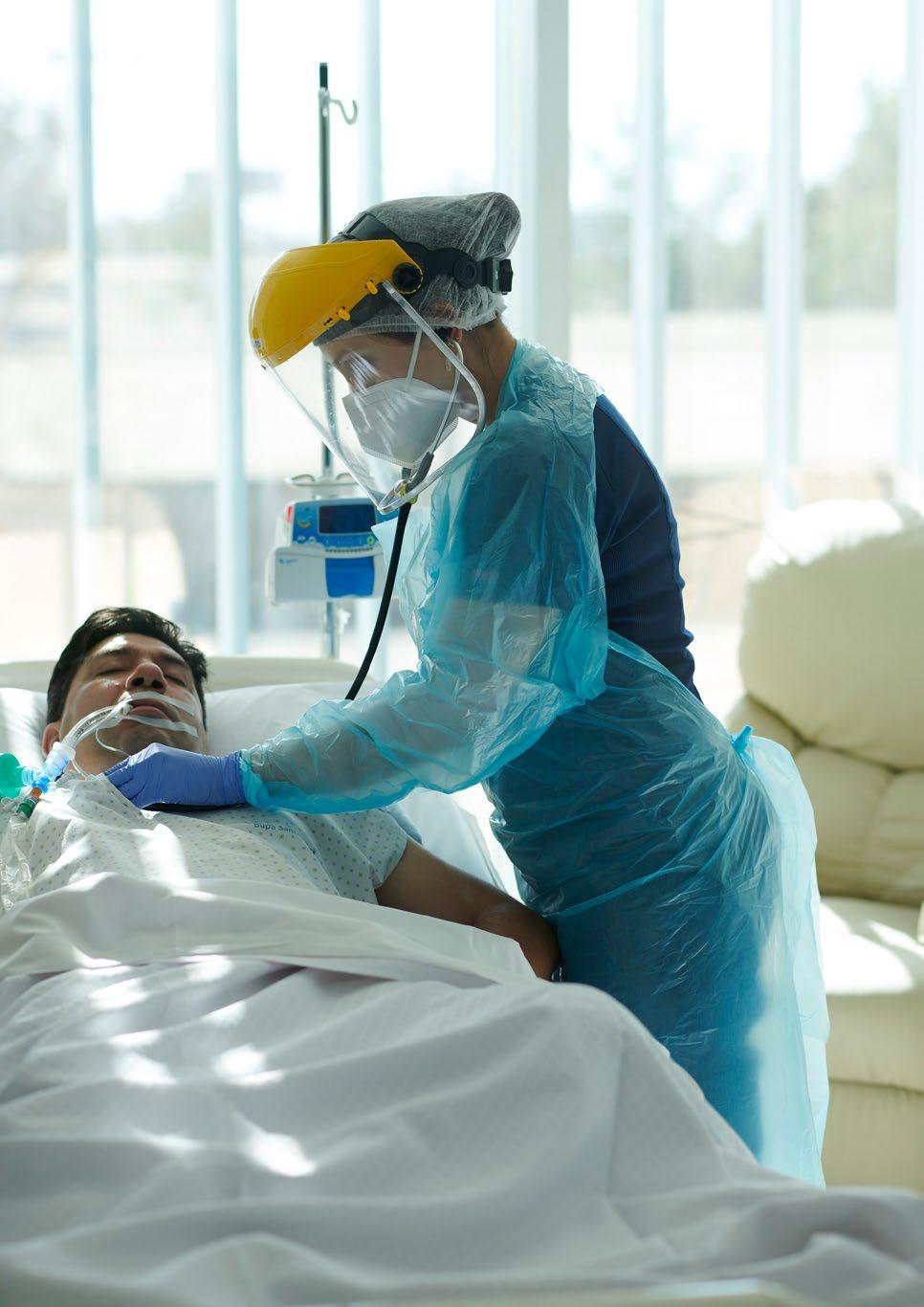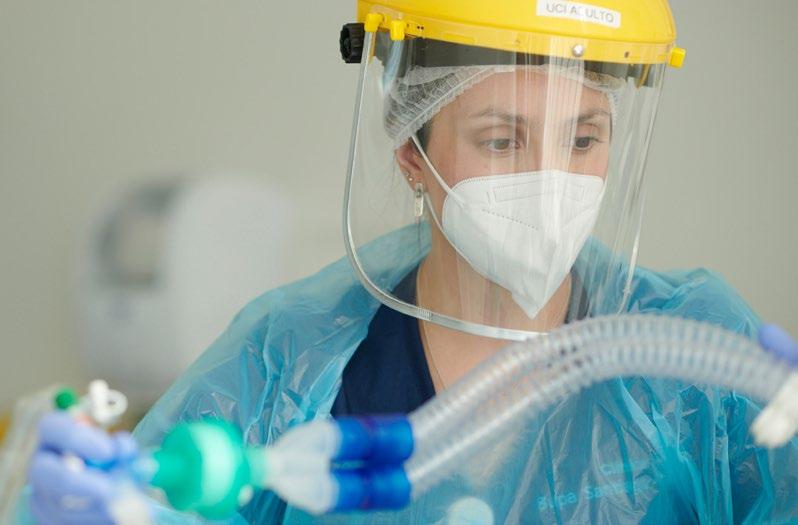
4 minute read
Being surrounded by death makes you value life more
sofía gaete Nurse Bupa Santiago Hospital
I have been a nurse for ten years and I work in the intensive care unit at the Bupa Santiago Hospital. I have always looked after my patients as if they were my family, caring for their needs and treating them like I would my own family. At the clinic, there are spaces where the whole family is involved. Patients often tell me, Miss, I don’t want to disturb you, you need to get on with your work, but that is my work, being with them, helping them feel better and just being there. The pandemic is something we never expected to live through. From the start of this year, we began to prepare for what was coming, training up extra staff and looking at how the pandemic would behave in Chile at its peak and how we would deal with that. It ended up being even worse than we expected. June and July were the worst, when many people didn’t even make it to the intensive care unit, and others couldn’t be saved despite our very best efforts.

SANTIAGO — CHILE
Patients would come in urgently needing a ventilator. They were awake when they arrived and I would discuss with them what was going to happen. They were between the ages of 35 and 80 years old. For many of them, these were their last conversations. They have stuck in my memory. When I talked to them before intubating and sedating them, they weren’t thinking about their last wishes, simply asking us to look after them and tell their family they loved them lots and were hoping to see them again. One patient I particularly remember. He was 75 years old and didn’t want to be intubated. His daughter called us in desperation, asking us: please convince papa this is his last chance. I talked with him and explained that if he chose not to go on a ventilator he would have to be removed from the intensive care unit, because there were seven or eight people waiting for ventilators. It was all very dramatic. I finally convinced him to talk to his daughter on the phone and she persuaded him to do it. All three of us cried at that point. Then, Raúl said: I accept, connect me up and do everything that is needed to get me better. Before he was connected up to the ventilator, he asked for pencil and paper to write a letter to his family. He wrote a beautiful message about how he would be fine, how he loved them lots and was looking forward to them coming and getting him soon. Sadly, he died.
Through all of this, I have The family couldn’t come and get him, learnt that we need to take and I thought the letter might be lost, as a stock of what we are going deceased person’s effects are stored away in a bag. So I asked my boss to take a picture through, what we are learning, of it and send it to the family by e-mail. how we are going to look at life His daughter sent me a thank you message saying: Sofía, I can’t thank you enough. This from now on and, of course, makes me feel close to papa. I know you would how fragile we humans are. have talked to him the way I would myself if I had been at his side, and I want to thank you from the bottom of my heart. Our profession is like no other. Sometimes, no matter how much you give the very best of care, things happen, situations that are out of our control. There were not only the difficult times, but there were the successes too. I had one patient whose face I remember more than their name. He was 33 years old. He came in during my night shift and was very unwell. He told me he had kept on working because he wanted to buy an apartment, but ended up catching Covid. He deteriorated quickly. He was young but had underlying risk factors. After nearly a month and a half, he began to come round and I told him: don’t worry, I am here to look after you. He was embarrassed because I had to bathe him. People feel it takes away their dignity, but we always make them feel better. He began, little by little, to recover. One day, he gestured through the screen with his hand and said to me: Thank you Sofía. I couldn’t stop crying. Through all of this, I have learnt that we need to take stock of what we are going through, what we are learning, how we are going to look at life from now on and, of course, how fragile we humans are. �








